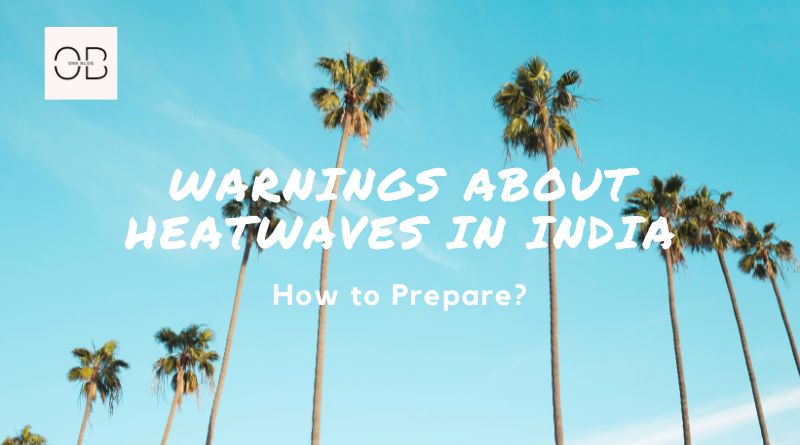The India Meteorological Department (IMD) previously announced heatwaves in India following two stations that registered temperatures of 37 ° Celsius in Mumbai. It also announced that the IMD has also issued a warning of heatwaves to that region, known as the Konkan zone, which includes Mumbai.
In the midst of having experienced extreme rain, Kerala is now facing extreme heat and temperatures that are reaching unimaginable levels. The summer season just started in the state’s coastal region and the daily temperature index is already showing an alarming trend. On Thursday the Kerala State Disaster Management Authority (KSDMA) issued a report that states that certain regions in the state’s southern region have registered an index of heat that was higher than 54° Celsius.
This is a serious health risk and also increases the chance of suffering from heatstroke. It is vital for residents to act quickly to avoid heat-related illness and keep them safe throughout this period.
Concerns of Severe Heatwaves in India

In a recent address during which PM Narendra Modi called attention to the alarming increase in fire incidents occurring in densely urban areas like factories, hospitals hotels, and multi-story residences in recent times, especially when temperatures are high. Modi’s remarks shed light on a problem that is threatening the safety and well-being of people, and highlight the need for greater efforts to avoid and tackle the risk of fires in these environments.
The IMD has issued warnings about heat waves that will last from March until May, with temperatures predicted to rise between 3 and 5 degrees Celsius above the normal. The beginning and the effects of the monsoon period are predicted to be severe events and pose a serious danger to the agricultural sector as well as public health.
Also, Read: Scientist Views on Heatwaves
Do’s and Don’ts to Battle Heatwaves in India

The potential impacts of hot weather conditions require authorities to take proactive steps to limit the effects on vulnerable populations. They also need to ensure that vital resources are readily available for those in need. Apart from government efforts, we citizens need to take precautions against severe heatwaves in India. Here are the best practices to do in the event of an extreme heatwave.
Do’s Incase of Severe Hot Weather
- Drink plenty of fluids, preferably fresh fruit juices, and water to remain hydrated.
- Wear loose-fitting and light-colored clothes to let air circulate and help cool your body.
- Apply sunscreen that has an SPF that is high to shield your skin from the sun’s harmful UV rays.
- Take light meals and stay clear of excessively spicy, heavy, and oily meals that boost body heat.
- Use cool baths or showers to reduce your body temperature.
- Utilize fans or air conditioning to keep your office or home cool.
- If you have to go outside take a hat with a wide brim and carry an umbrella to get shade.
Don’ts Incase of Severe Hot Weather
- Do not stay inside as long as you can during the most humid periods of the day typically between 12 pm and 4 pm.
- Avoid drinking alcohol or caffeine-based drinks because they could cause dehydration.
- Do not engage in vigorous exercise during the hottest periods of the day.
- Do not leave your children, elderly people, or pets inside vehicles.
- Do not expose yourself to the sun’s rays for long durations.
- Be aware of symptoms of exhaustion caused by heat like dizziness, fatigue, and headaches.
- Avoid smoking or using tobacco products because they may raise the chance of developing heat-related
- diseases.
- Avoid drinking or eating foods that have not been properly stored or exposed to the sun for a prolonged period of time.





